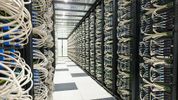The excitement about the future of biotechnology, as highlighted in the MSN article, is palpable. We are at the dawn of what could very well be biotechnology's own "ChatGPT moment," where innovation not only transforms but fundamentally reshapes entire industries and daily life. The integration of advanced AI with biotechnology is opening doors to extraordinary possibilities: from combating climate change and enhancing food security through genetically modified, climate-resistant crops, to revolutionizing healthcare with personalized cell and gene therapies.
What's most compelling about this new frontier is the potential for biotechnology to address some of the most pressing challenges facing humanity. The recent U.S. regulatory approval for the production and sale of lab-grown meat, and breakthroughs in AI-driven material science by teams like Google DeepMind, exemplify the rapid pace of innovation. The application of CRISPR technology in developing treatments for genetic diseases further underscores the transformative power of biotechnological advances.
As the article suggests, the implications of these advancements extend beyond science and into geopolitics and economics. The need for a robust, secure supply chain and a strong domestic talent pool is crucial for maintaining leadership in this high-stakes arena. As we navigate this promising yet precarious path, establishing rigorous safety and ethical standards like ISO 42001 for AI, is paramount to ensure that biotechnology's power is harnessed responsibly. As the U.S. prepares to lead this charge, it's a n intriguing time for anyone involved in or entering the field of biotechnology.
Imagine a world where everything from plastics to concrete is produced from biomass. Personalized cell and gene therapies prevent pandemics and treat previously incurable genetic diseases. Meat is lab-grown; enhanced nutrient grains are climate-resistant. This is what the future could look like in the years ahead.
 unknownx500
unknownx500



/Passle/5e4a7839abdfeb03584d01f6/SearchServiceImages/2025-06-27-17-06-07-486-685ecf7f56695e284e08aa89.jpg)

/Passle/5e4a7839abdfeb03584d01f6/MediaLibrary/Images/2024-04-30-18-16-36-836-6631358403765d17a4ed745c.jpg)
/Passle/5e4a7839abdfeb03584d01f6/MediaLibrary/Images/2024-04-28-22-50-59-542-662ed2d3122374286d71e916.jpg)









